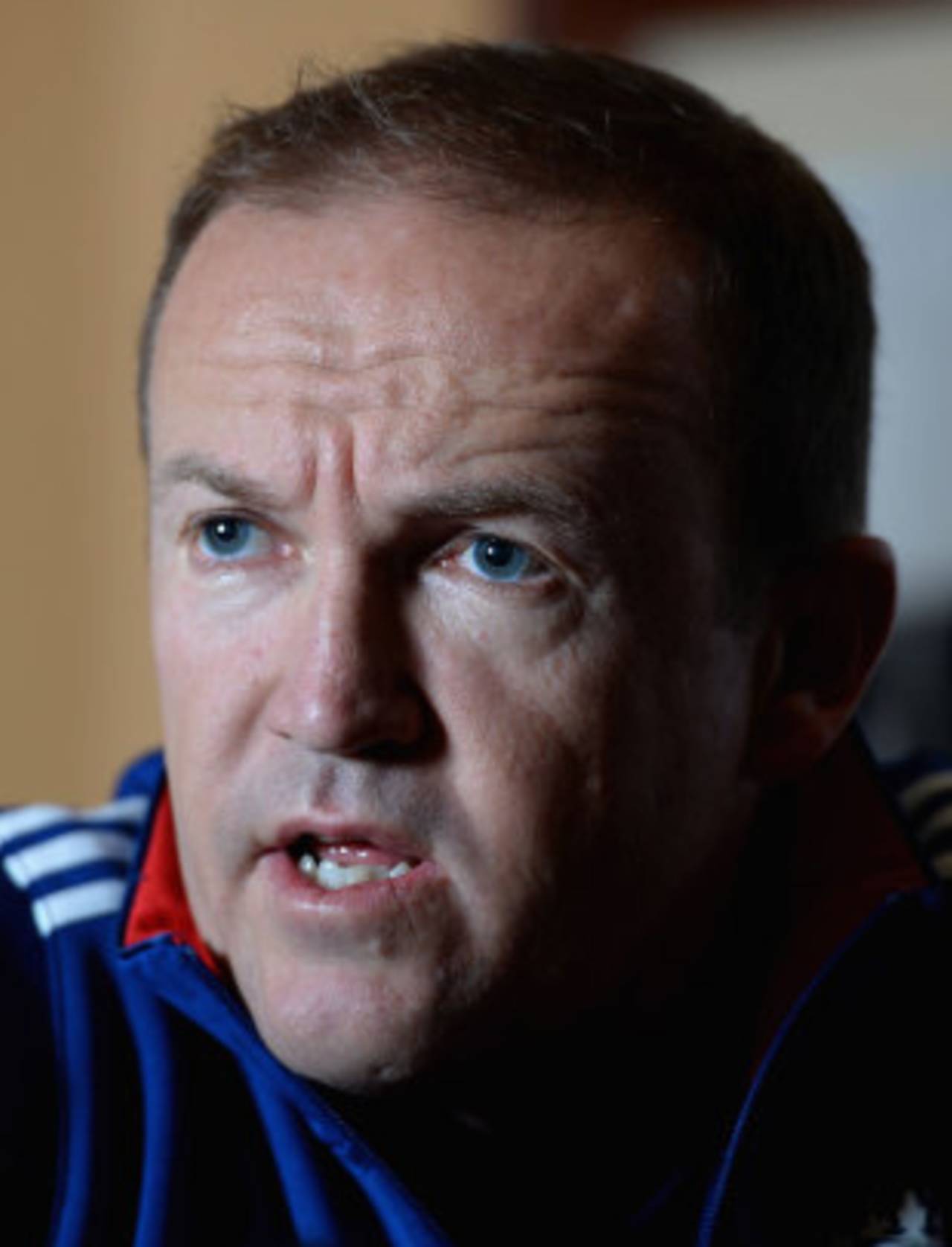If ever confirmation was required that an age has ended in English cricket, it comes with the news that
Andy Flower has
resigned as England's team director.
Flower has been an exceptional leader of the England team. Appointed with the side in disarray at the start of 2009 - his predecessor,
Peter Moores, and the captain, Kevin Pietersen, had just been sacked and, in his first game as stand-in coach, England were bowled out for just 51 - he oversaw victory in three successive Ashes series, home and away Test series over India, a first global limited-overs trophy and periods at the top of the rankings in all three formats. By England standards, it has perhaps never been so good.
But, just like politics, nearly all sporting careers end in failure. If they didn't, they wouldn't end. Flower is now discovering that, like Duncan Fletcher, cricket coaches have a shelf life. After a while, one voice and one message doesn't just reinforce, it limits and confines.
Flower was a breath of fresh air for England cricket. His prowess as a player, when he was once rated the best Test batsman in the world, and his track record as a man - his black armband demonstration in Zimbabwe marked him out as an individual of courage and honour - ensured he had the complete respect of his charges. It had not been the case for Moores.
And, in those first couple of years, Flower's attributes took England to new heights in their relatively modest history. Building on foundations set by Moores - it was, after all, Moores that backed Graeme Swann, James Anderson and Matt Prior - Flower embraced modern technology, greater emphasis on fitness, planning and an excuse-free culture that dragged England into the modern age. He demanded England improved. He stuck with players he rated and he instilled a hard, patient style of cricket that demanded much of his charges but fitted a relatively fresh team hungry for success.
But somewhere along the way, all those qualities that made him so ideal for that period in English cricket have become part of the problem. His determination became dogged. His loyalty became stubborn. The respect in which he was held veered towards fear. His tactics exhausted a four-man attack and batsmen relying more on concentration than flair. His intensity, his attention to detail and his demanding personality started to inhibit England.
Some members of the England set-up started to express concerns about the team environment long before the end of the Ashes tour, even as England were beating Australia 3-0 at home
It left them weary, tense, joyless and burdened with fear and pressure. The attention to detail that saw England produce an 80-page cookbook - fine in its own right - also saw them stop playing football or touch rugby in warm-up. There was too much science and not enough fun.
This news should not come as a surprise. Some members of the England set-up started to express concerns about the team environment long before the end of the Ashes tour. Indeed, some raised concerns even as England were winning the Ashes 3-0 at home.
History will remember Flower fondly, but
England need refreshing. They need to rediscover their joy in playing the game. They need a change. Flower was the perfect man a few years ago but, given too much power and surrounded by several coaches who did little to lift the mood - Graham Gooch was the man who pushed David Gower out of international cricket, remember - the England environment simply stopped bringing the best out of players.
Instead it left several new faces - the likes of Simon Kerrigan and Boyd Rankin - obviously overawed and others - Jonathan Trott and even Alastair Cook - burned out.
Ashley Giles will be the overwhelming favourite to replace Flower, though advertising the appointment openly could do no harm. Giles might, in many ways, be seen as Flower-lite: he has a softer touch, a more flexible approach and presides over a less intense dressing room. It may be relevant that Giles also retains a close, respectful relationship with Kevin Pietersen, whose faith in Flower appeared to have diminished.
Whether England need evolution or revolution is debatable, but Giles has, to date, been obliged to steer with a back-seat driver in Flower reluctant to release his grasp on the wheel. Whether this episode has repercussions for Cook and Pietersen remains to be seen, but there are those within the ECB who remain unimpressed with Pietersen, in particular.
It seems safe to conclude that Paul Downton will not shy away from tough situations. This episode marks a bold start to his period as managing director of England cricket. He was not officially meant to take office until February 1 but he has already ignored the (premature) assurances of David Collier, his chief executive, that Flower would oversee England into 2015 and shaken up a regime with a fine long-term track record but unavoidable signs of decline. They are the qualities that rendered Downton a success in the City of London and bode well for England's future.
Flower should leave the post with his head held high and with a nation grateful for his outstanding contribution. But that does not mean this is the wrong decision.
George Dobell is a senior correspondent at ESPNcricinfo
